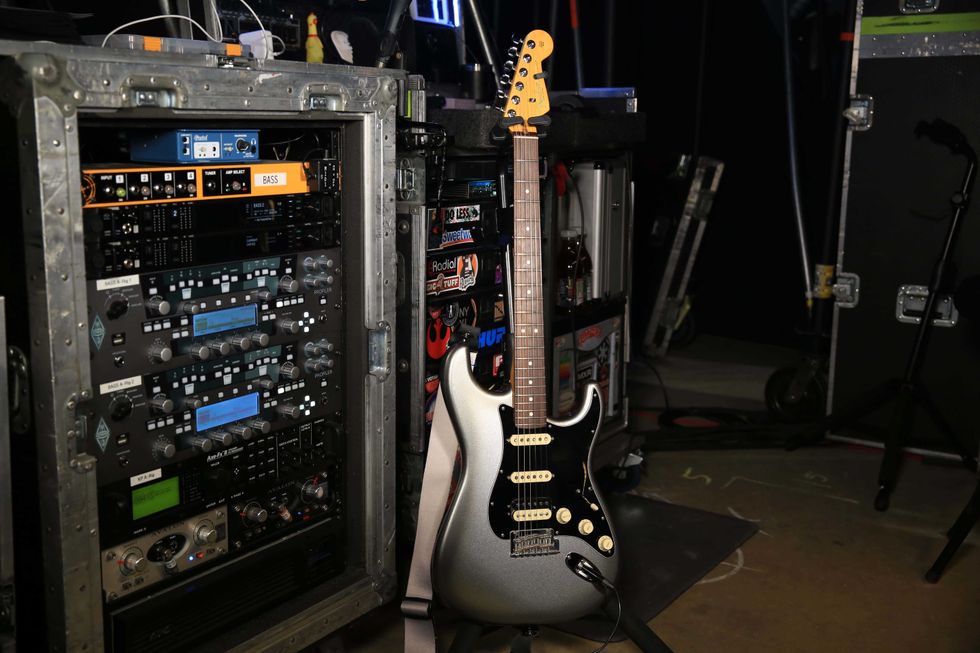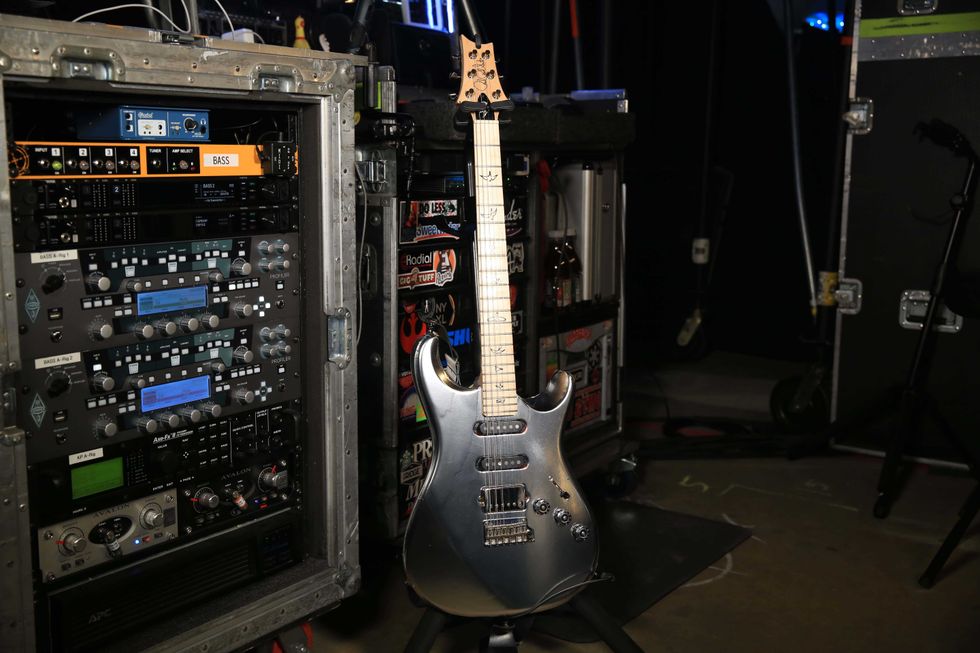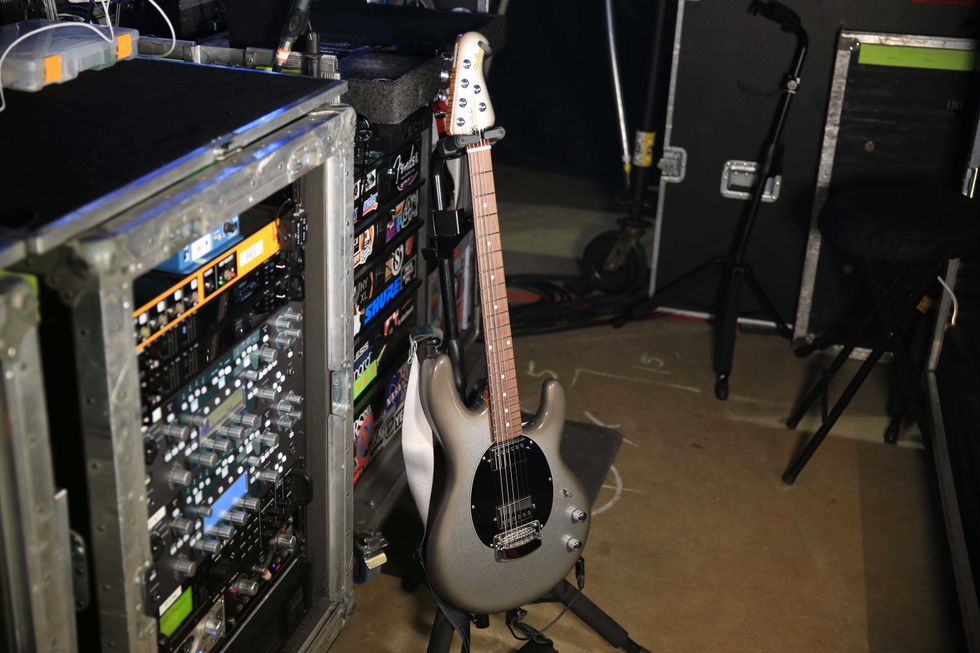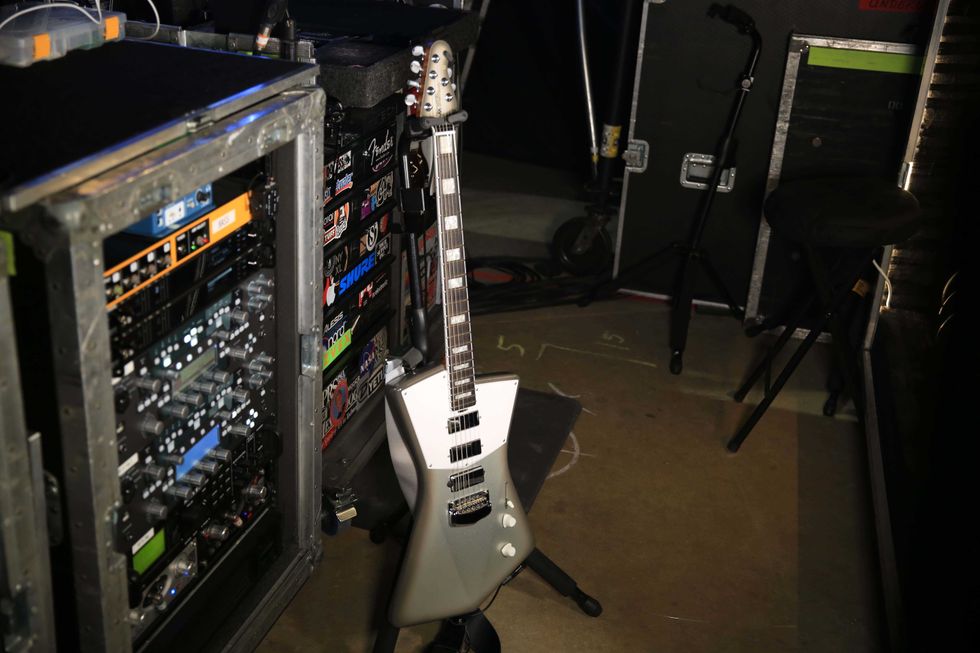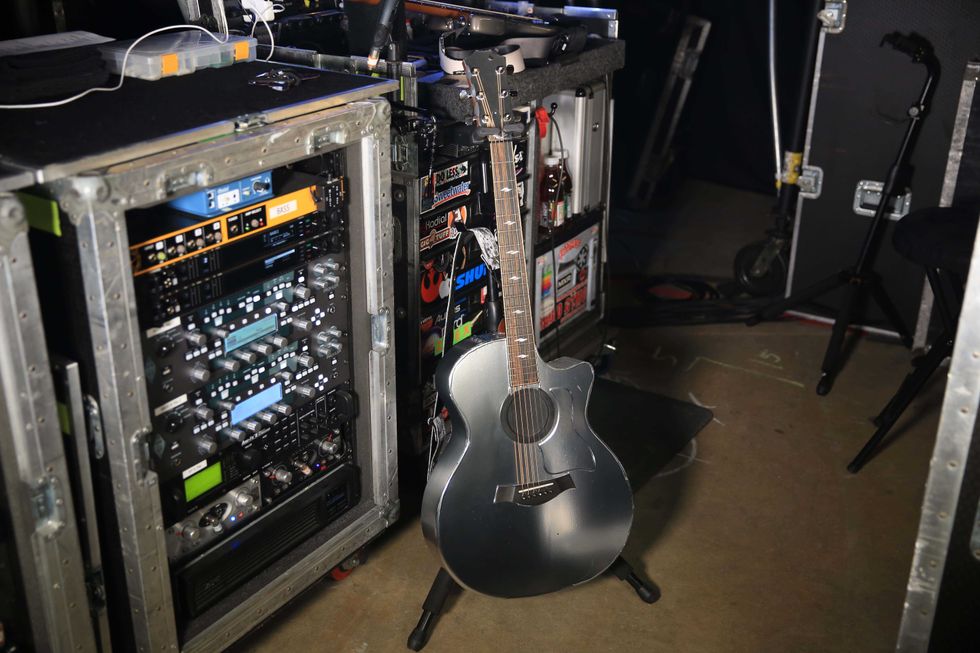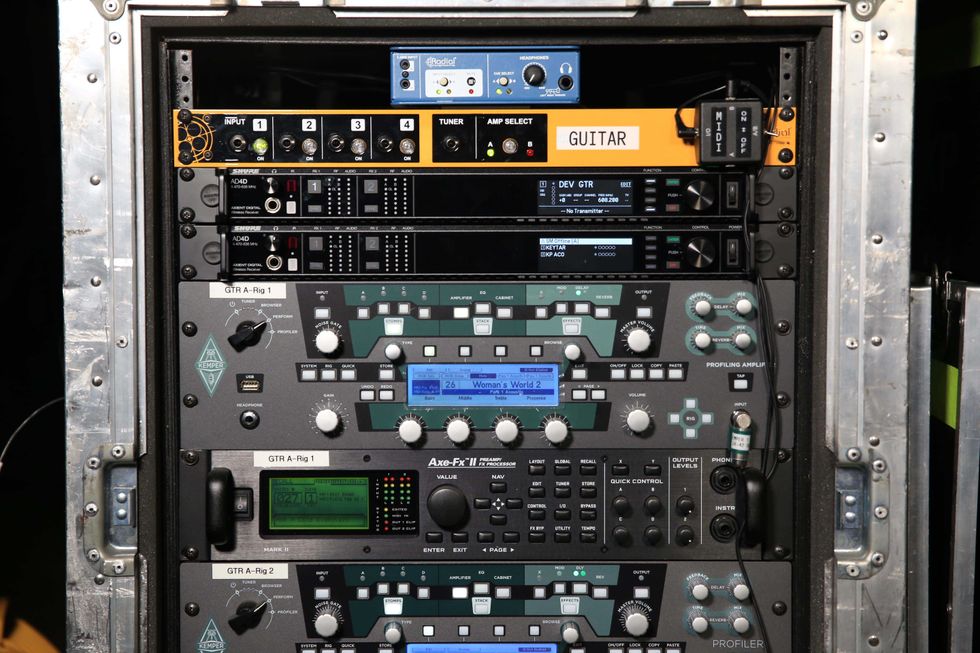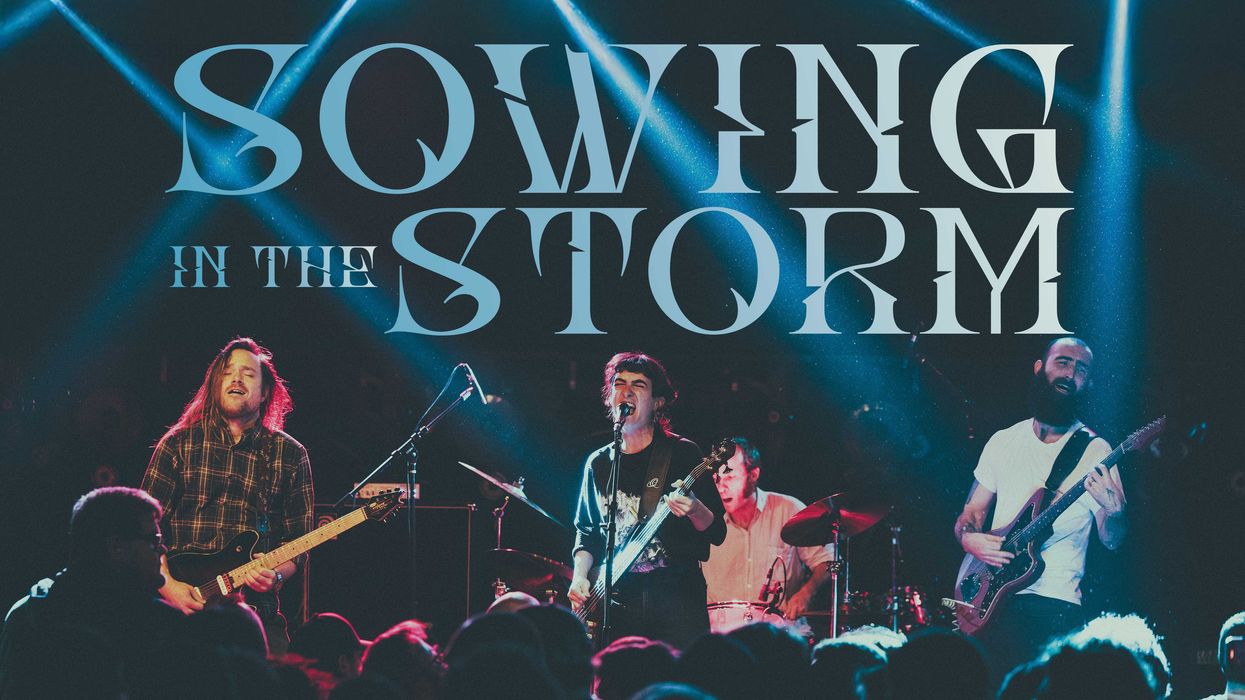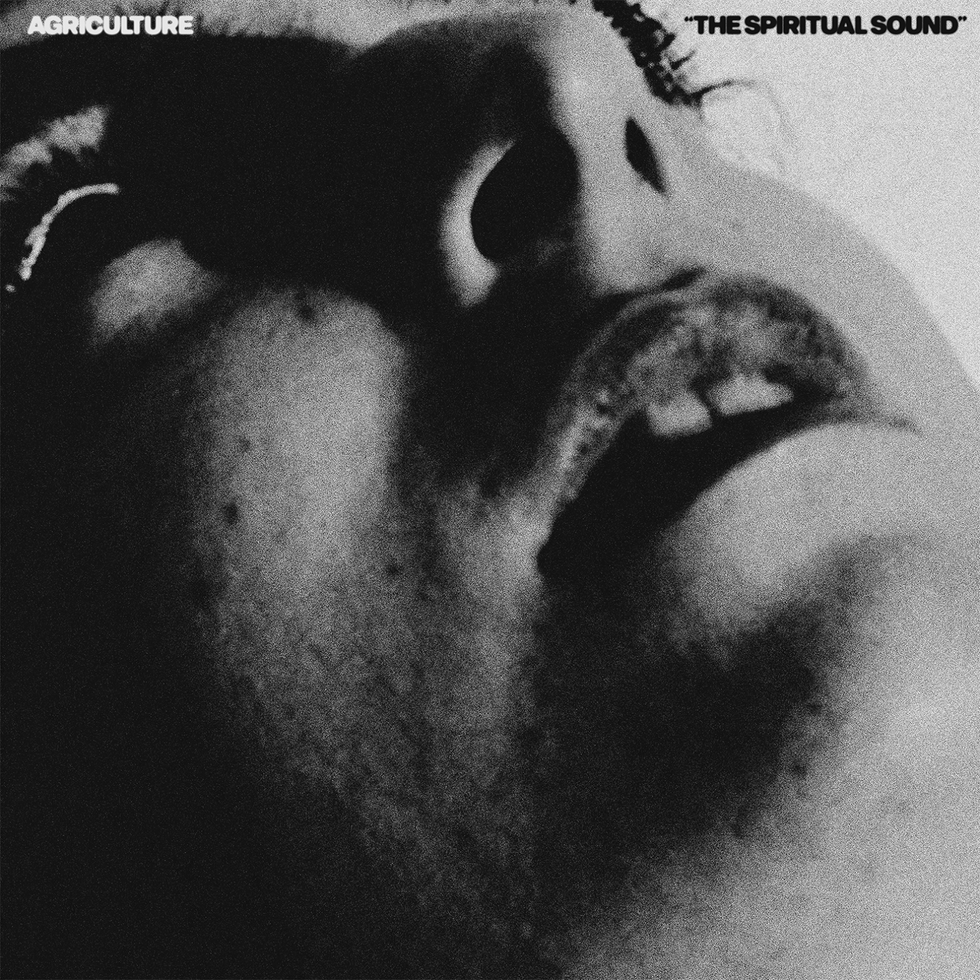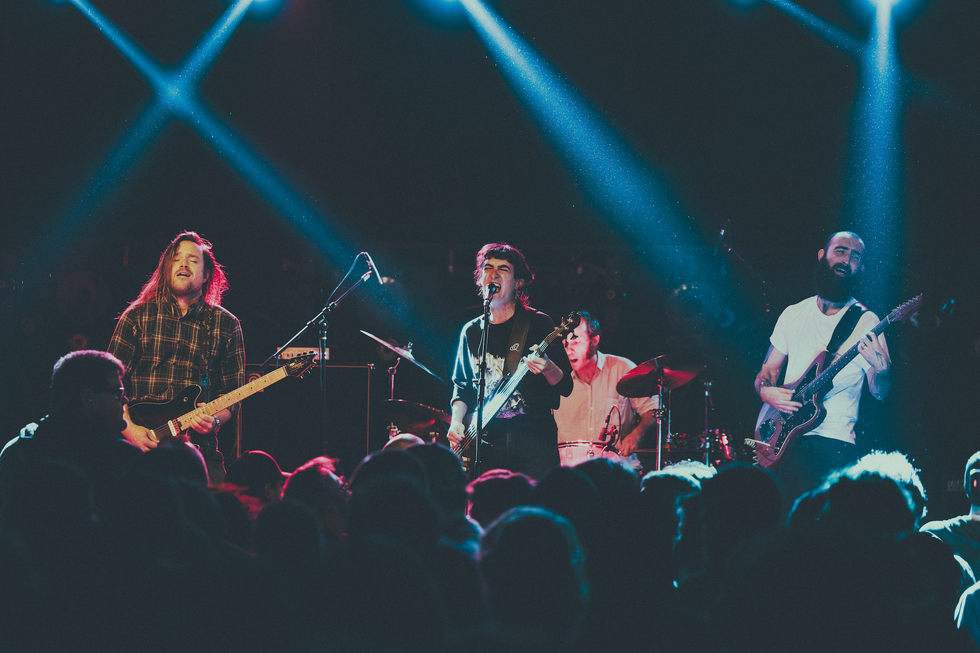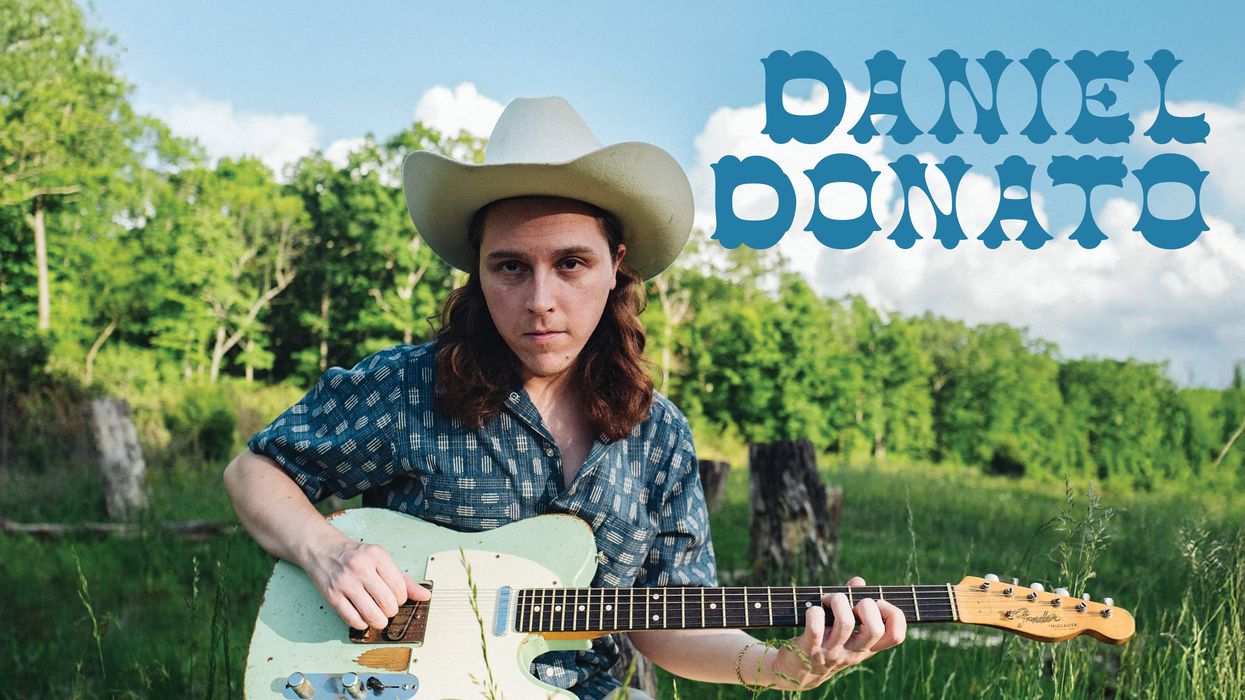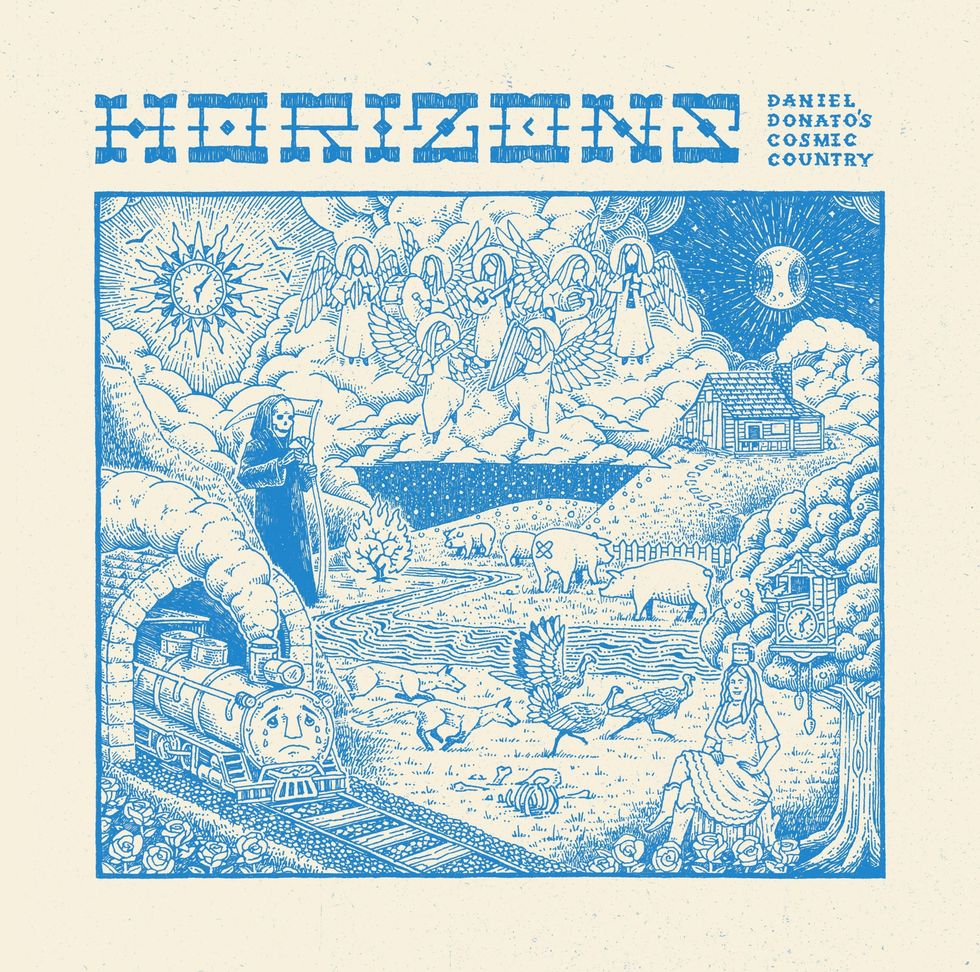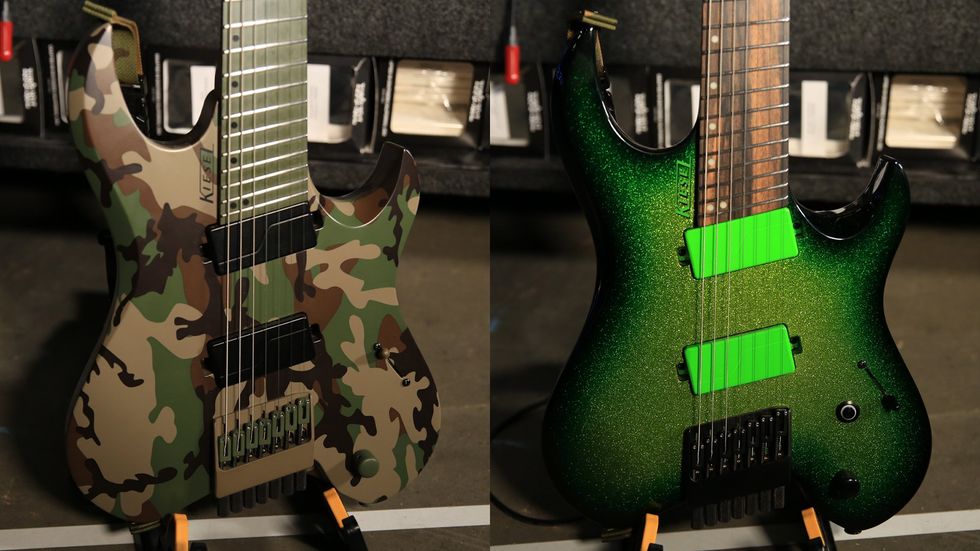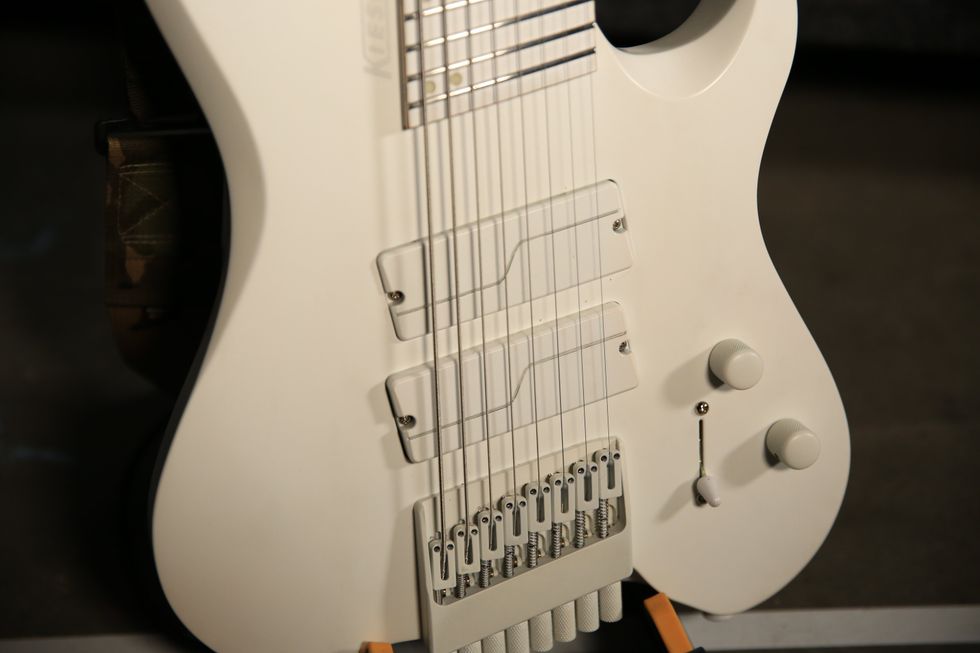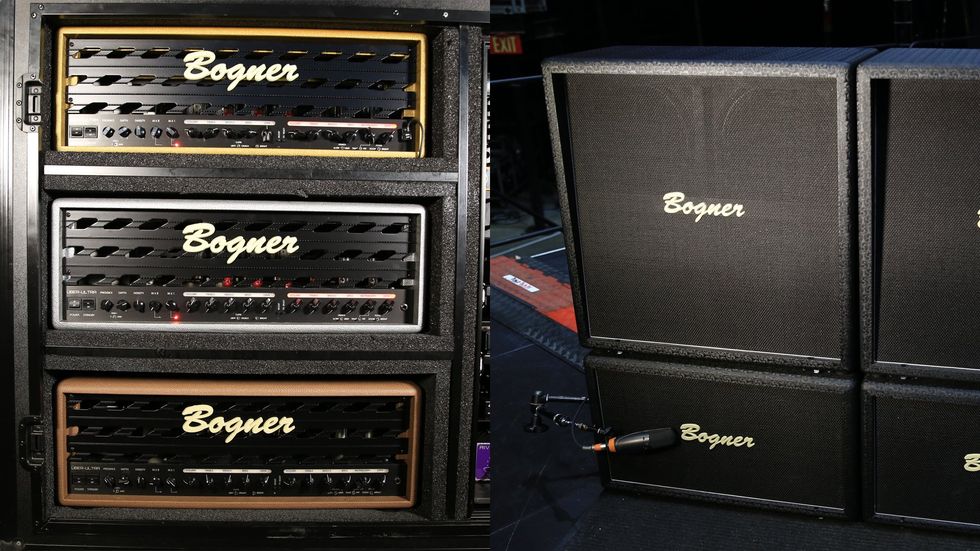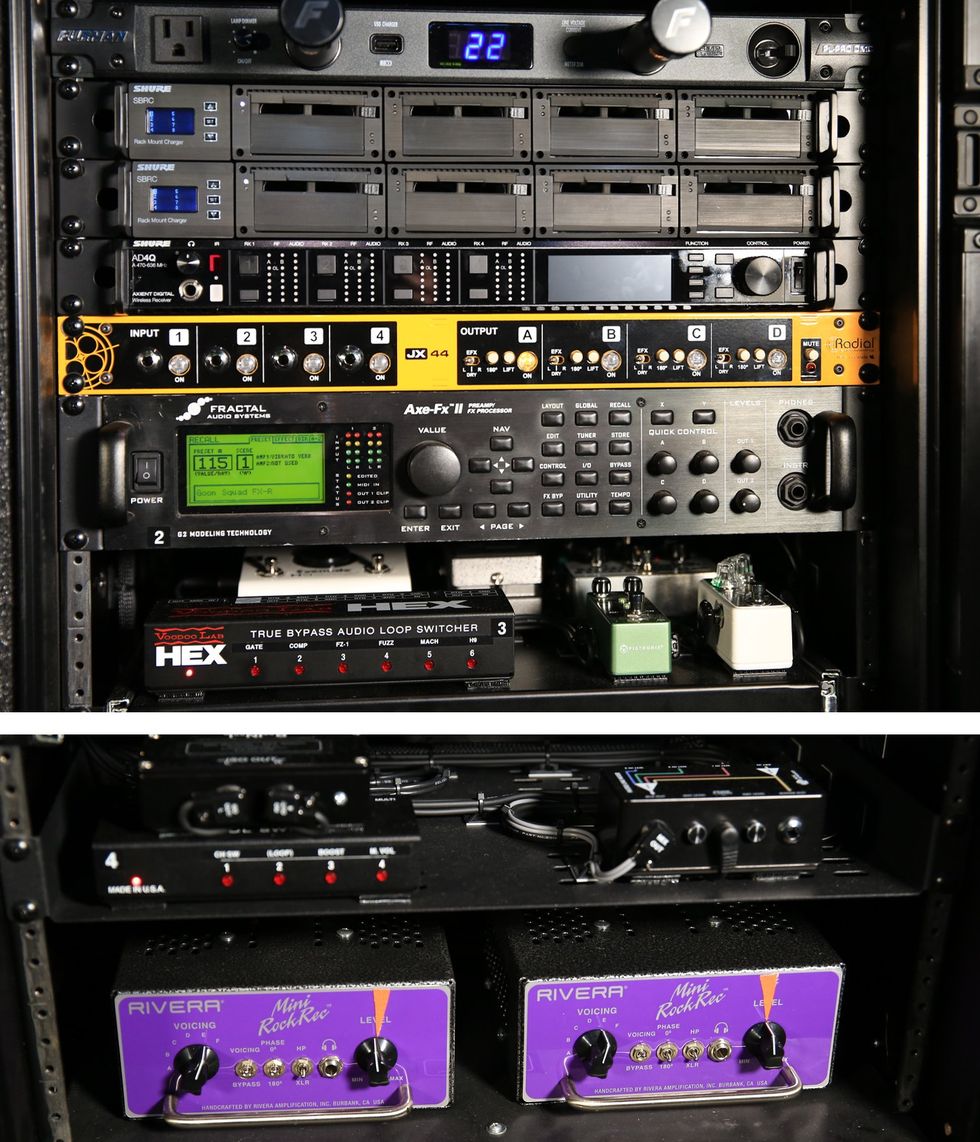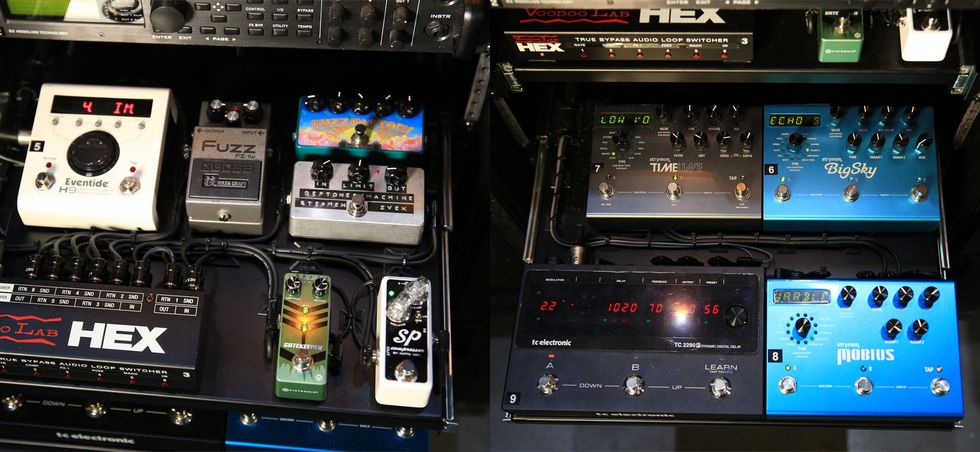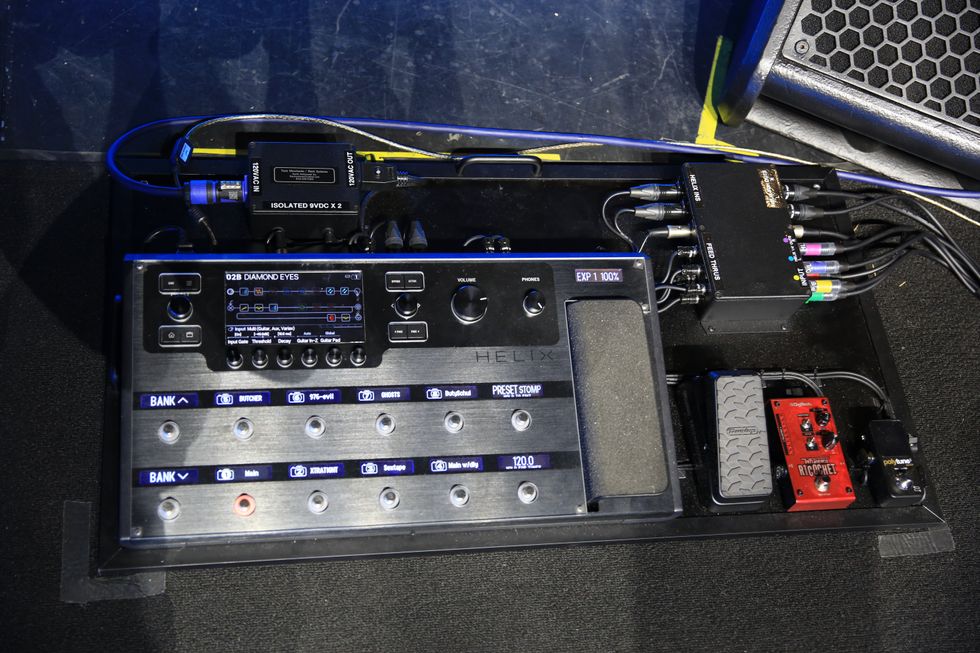“Bass playing is like humming to me,” says Khruangbin’s Laura Lee Ochoa. “I hum to myself all the time. It’s very in-your-body. It’s also one note, it can be as melodic as I want it to be, and it’s simple. It was something that just resonated with me.”
Ochoa is describing the epiphany that brought her to the bass back in 2009, when she was working as a third-grade math teacher. First learning piano with help from her pal, guitarist Mark Speer, she recalls, “I was trying to play along to a song and he said to follow the bass. Then I picked one up, and it weirdly made sense to me.” It was a monumental event—the catalyst for just about everything that followed.
Soon, Ochoa quit her teaching job to go on tour with Speer in the shoegaze band Yppah. “It was five people staying in a Motel 6 every night, flipping a quarter for who slept on a bed,” she remembers. “We were in a minivan, I had no amp, I was playing direct every night—it was that kind of tour. Our very last show was in Seattle, and we drove to Houston in one shot and didn’t stop. We were all crooked getting out of the van, and I looked at Mark and was like, ‘I wanna start a band.’”
Khruangbin - "Pon Pón"
Ochoa and Speer’s weekly hangs with Donald “DJ” Johnson Jr., a producer who played with Speer at a regular church gig, made assembling a band easy. “I didn’t know that DJ played drums,” says Ochoa, “because I knew him as an organ or keyboard player. Mark was like, ‘I’ve never heard DJ play drums, but I know he’ll play the way we want.’”
“I didn’t grow up ever thinking I’d play bass.”
Fast forward a few years of jamming, and Khruangbin released their debut, The Universe Smiles Upon You, in 2015. The trio caught the ears of listeners and critics with their unique stew of influences, the most immediate of which was vintage Thai funk, but international sounds from Peru to the Middle East were detectable. Speer played with the reverb-soaked twang of surf rock and the laid-back feel of soul jazz. Ochoa and Johnson served as his rhythmic foils, delivering tight grooves with both bounce and economy that were equal parts reggae, Motown, and lo-fi hip-hop.
Laura Lee Ochoa's Gear
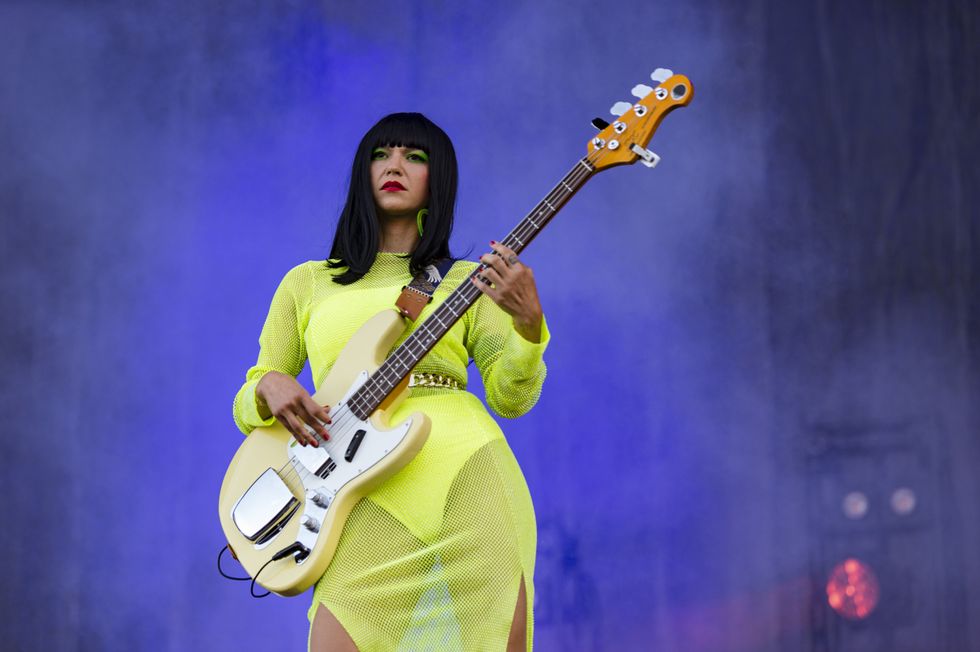
Ochoa uses flats on her original SX J bass and never changes ’em.
Photo by Jordi Vidal
Bass
- SX J bass
Amp
- Acme Audio Motown DI
- Ampeg bass amp
Strings
- Flatwounds
Khruangbin skyrocketed to the tops of taste-making lists, drawing in record collectors and public radio listeners alike. Along the way, the band lived in their sound more deeply with every new project. And there have been many: They’ve now delivered four LPs, plus a pair of EPs with Leon Bridges, and Ali, a collaboration with Malian guitar virtuoso Vieux Farka Touré as a tribute to his legendary father, Ali Farka Touré.
On their newest album, A LA SALA, the band jump-started the writing process by digging into their vault of demos and jams, going as far back as one of Speers’ pre-Khruangbin demos of “May Ninth,” which dates from 2008. Other vault recordings came from throughout their career—“Ada Jean” was demoed around the time of their debut—while some songs are new. The goal, Ochoa says, was “to just be influenced by ourselves.” Like the Rolling Stones’ Tattoo You or Van Halen’s A Different Kind of Truth, both of which were created by archive-diving, there are no discernible differences between the old and new. They all simply sound like Khruangbin. “When I listen to the final product and what they turned into,” says Johnson of their vault recordings, “it’s incredible to me.”
While Ochoa and Johnson call Speer’s guitar the lead singer of the mostly instrumental group—though Ochoa’s voice is featured, it’s mostly as a background element—at the heart of the band’s sound is the deep, sympathetic rhythmic hookup between the three players, and much of that starts with the foundation laid down by Ochoa and Johnson. “A lot of times, it starts with DJ and I playing a bunch to lock in,” says Ochoa. “We’ll start smiling at each other, like, ‘We’re here now.’” Together, they bounce. They’re tight, but airy. The low end pumps enough to keep you moving, even on slower, lighter tunes, but their flow is always dynamic.

A LA SALA features all new recordings, but the songs are a mix of all-new compositions and some that consist of old riffs and parts dating as far back as 2008.
On 2020’s Mordechai, the band tweaked their formula and their feel. The songs leaned more toward poppy, dance grooves, and Ochoa’s breathy background vocals moved into the fore. Her playing changed as well. “I was trying to be complicated,” she explains. “I was trying to play things that were slightly less comfortable for myself because I was trying to go outside the box and play more notes or play faster.” It was an essential step in her internal relationship with the bass. “It’s like being a teenager in the lifespan of playing. I started out naively, and then I was like, ‘I know more, my fingers are more agile, I’m going to make this more complicated.’”
By pushing herself to the limit on Mordechai, Ochoa was able to find more of herself—the kind of stuff that really makes Laura Lee sound like Laura Lee—on A LA SALA. “I feel like with this record, I didn’t have that same need,” she says. Instead, she decided to “just play what sounds good and what feels good.”
“If you lose the fourth-finger thing, it creates a limitation, but for me it’s fun and bouncy.”
Whether on “Juegos y Nubes,” where she plays an on/off counterpoint to Speer’s guitar melody or “Three from Two,” where she injects melody into a mostly root/fifth pattern, her sound is immediately recognizable. Much of that is because of her melody-driven sensibility—her influences are more melodic, and she says she doesn’t really have favorite bassists. “I didn’t grow up ever thinking I’d play bass,” she points out.
Ochoa also credits her sound in part to her technique. “I don’t play with all four of my fingers, because I attach two of my fingers together,” she explains. “I’m not technically trained. Because of that, I think I play differently, and it changes the feel of the whole thing. Like James Jamerson playing with one finger, if you lose the fourth finger thing, it creates a limitation, but for me it’s fun and bouncy.”
And Ochoa’s sense of rhythm is a crucial part of her playing. It’s what helps sell the sound and makes it so infectious. “I play and practice Laura Lee bass lines because they’re fun to play,” says Johnson. “The stuff that you sit down and you play is the stuff that’s good and the stuff that you like. I’m always studying her placement. She has a very keen sense of rhythm that’s on top but doesn’t rush. It’s laid-back but it doesn’t drag. I’d be lying if I told you I’ve figured it out.”
YouTube It
The trio’s effortless mastery of groove and style is evident in this cover-filled set from the 2022 BBC 6 Music Festival.
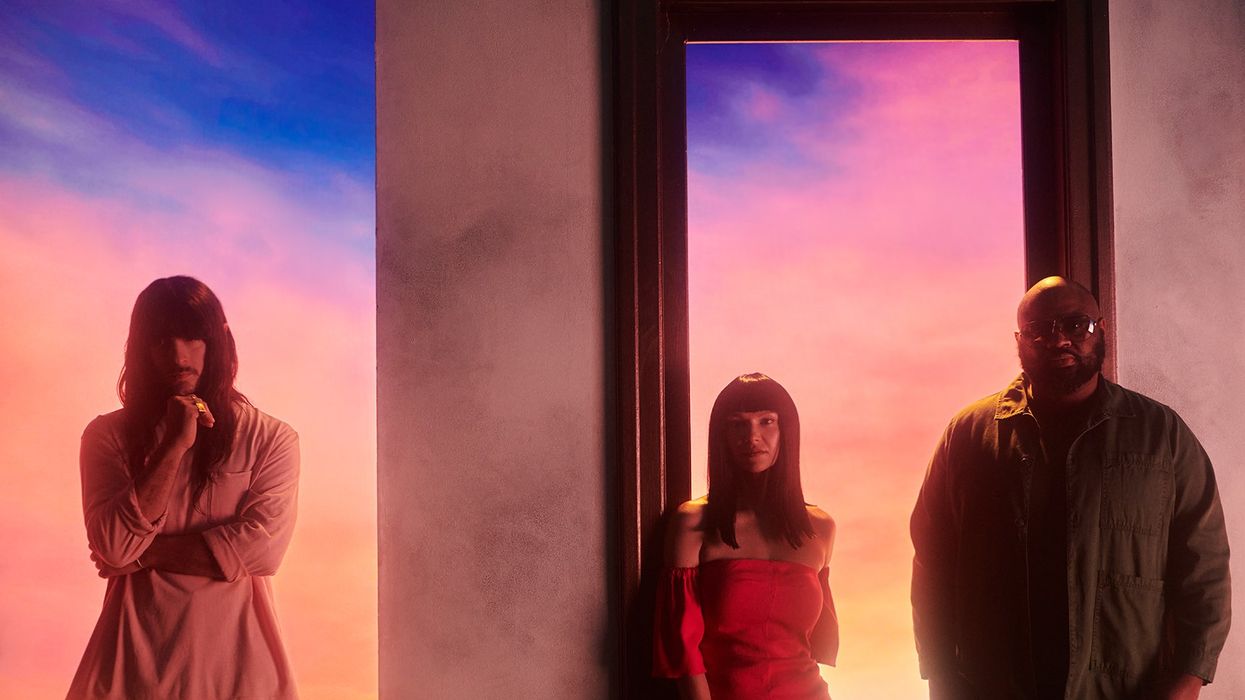

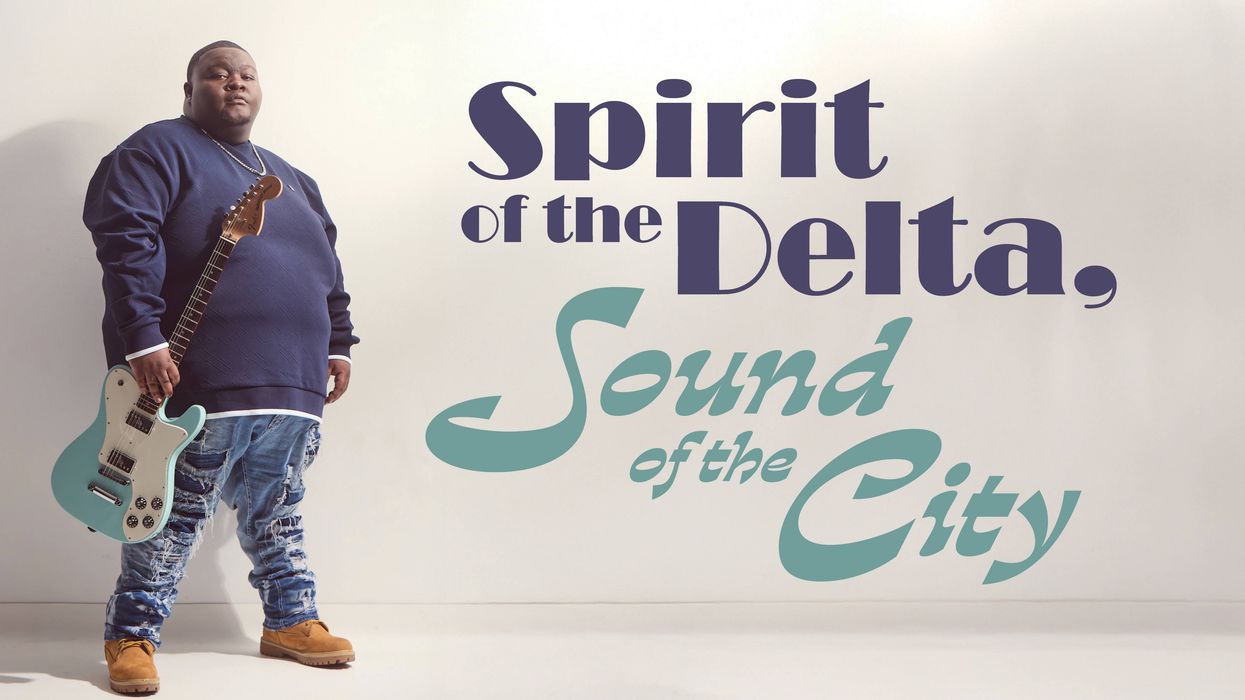
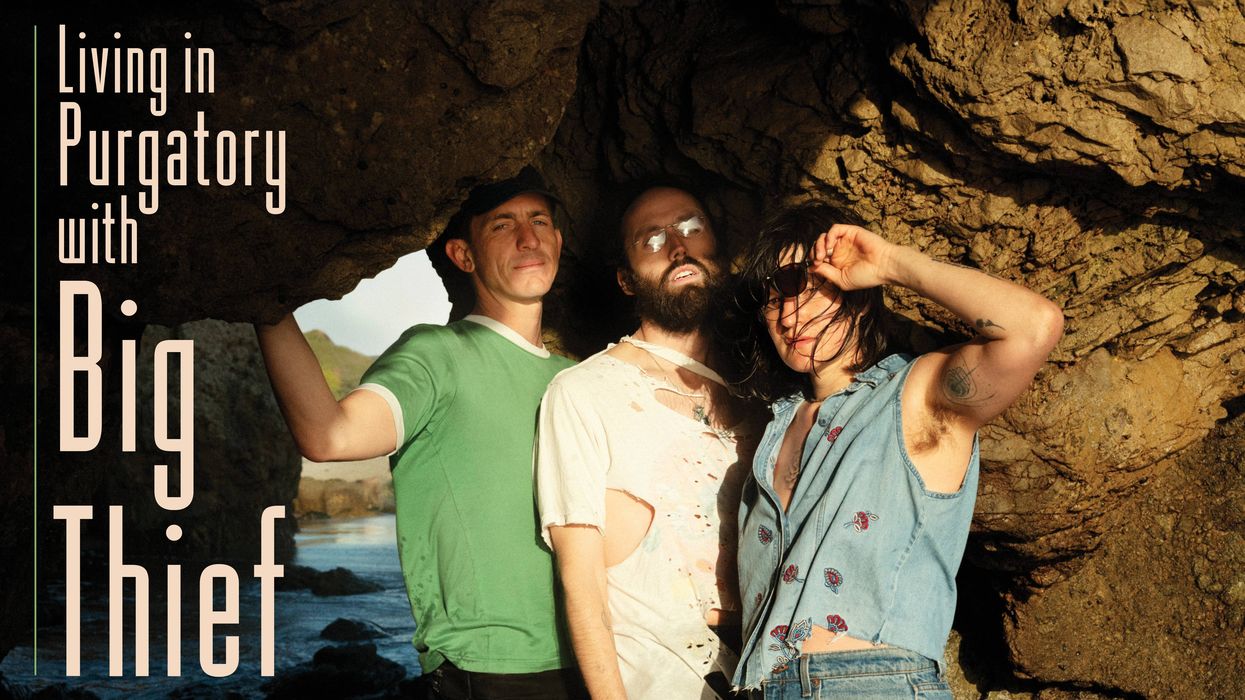
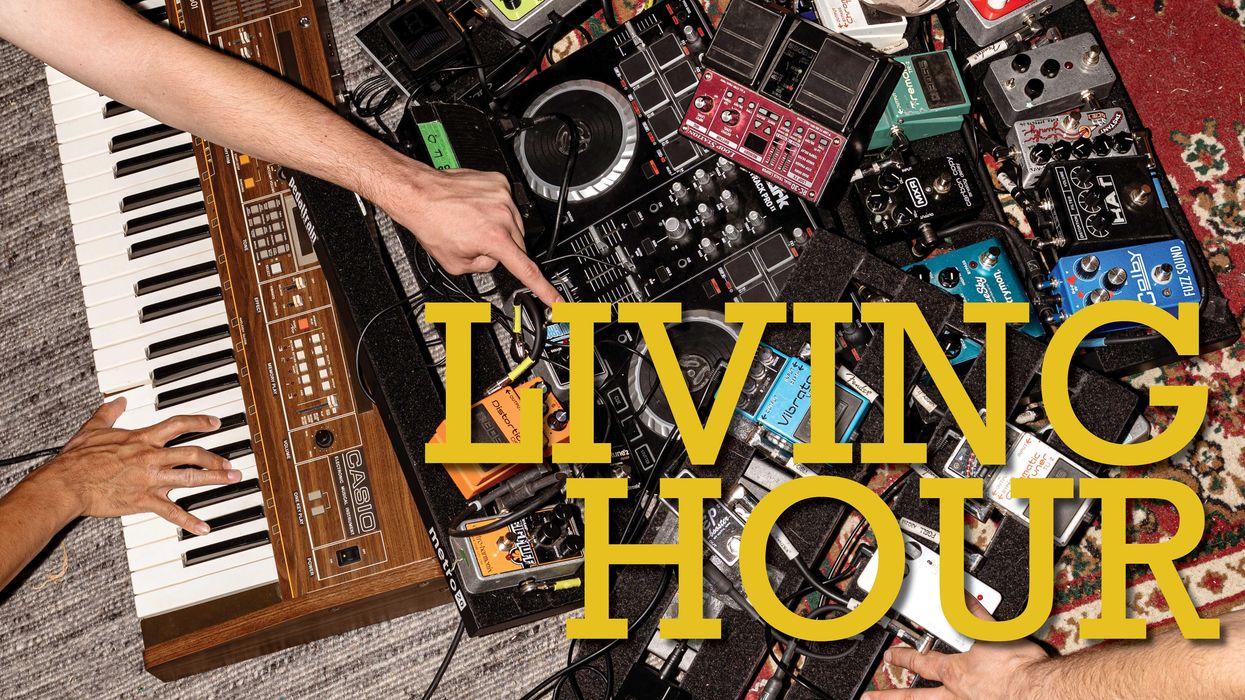
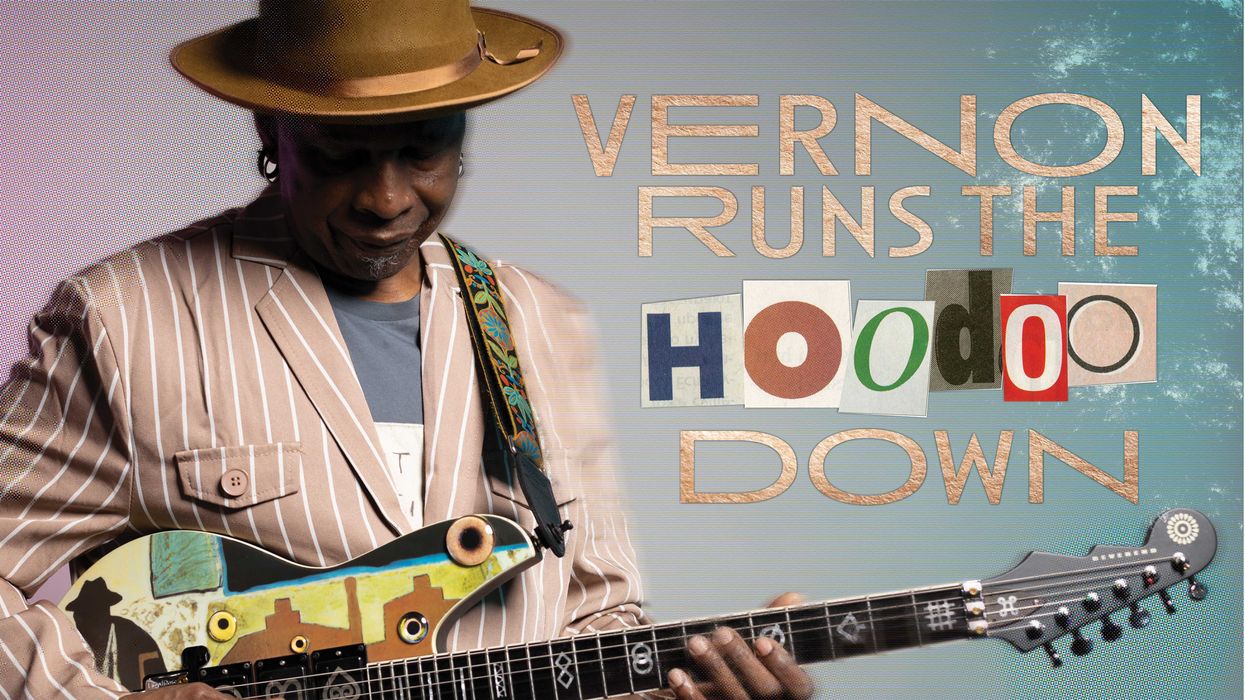
![Rig Rundown: AFI [2025]](https://www.premierguitar.com/media-library/youtube.jpg?id=62064741&width=1245&height=700&quality=70&coordinates=0%2C0%2C0%2C0)












 Shop Scott's Rig
Shop Scott's Rig
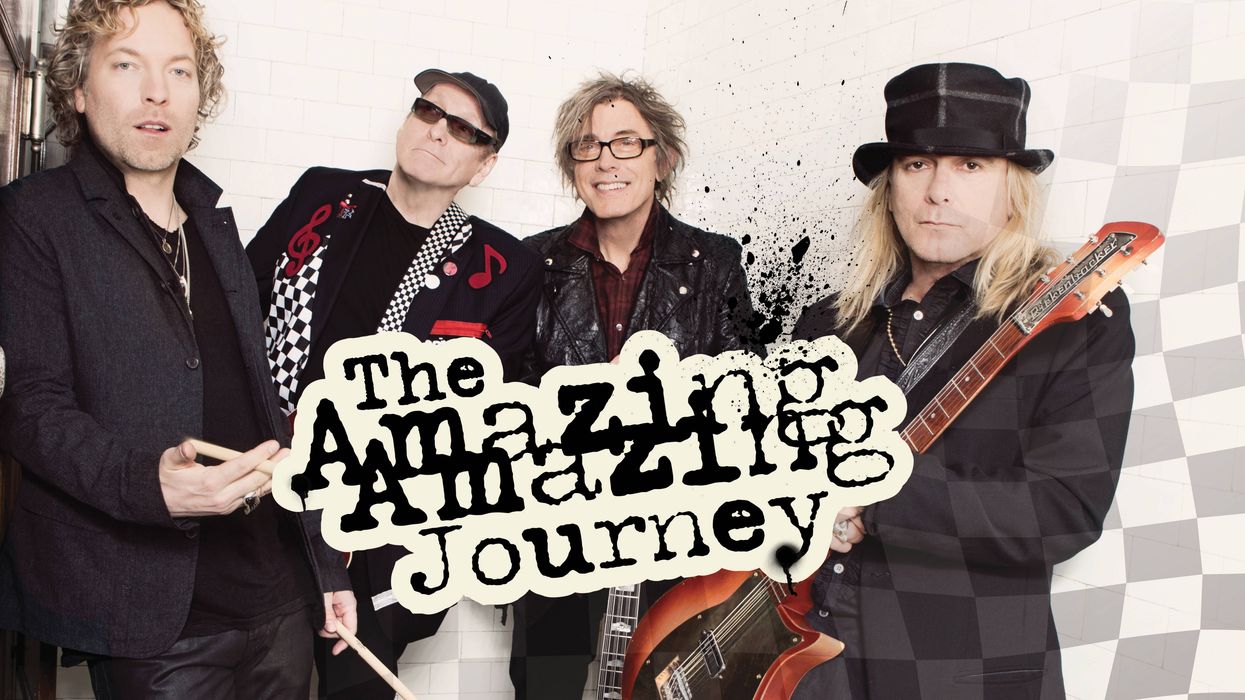
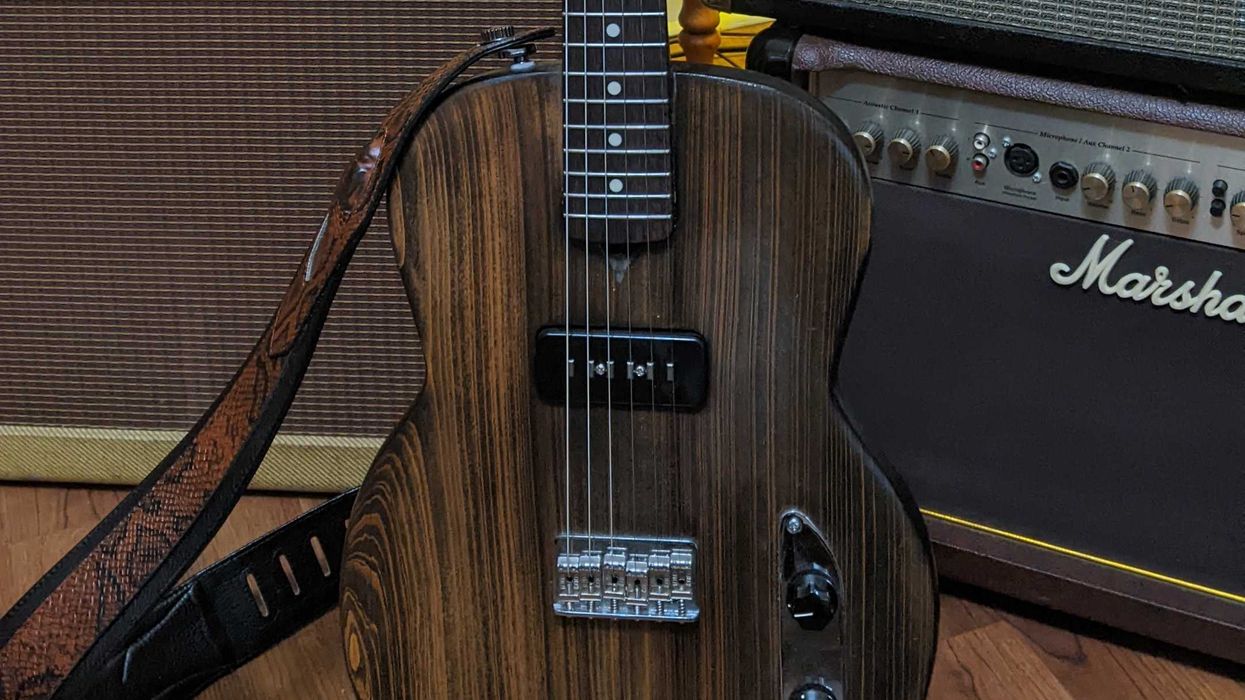
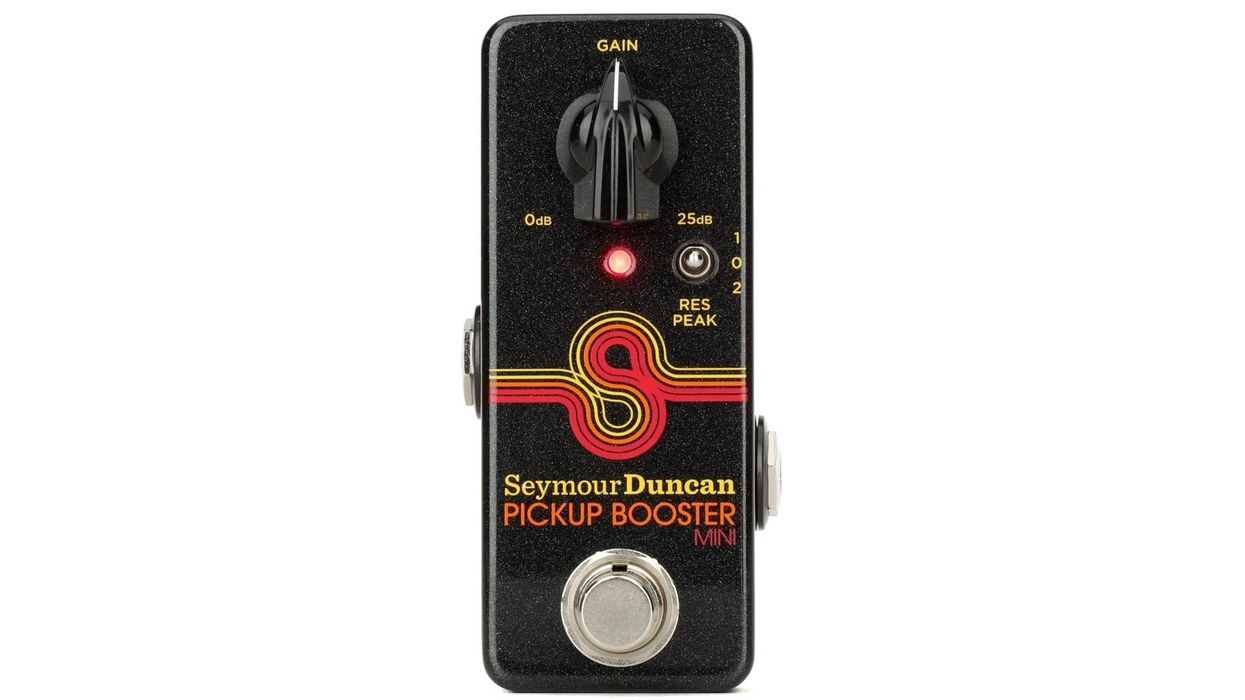


![Devon Eisenbarger [Katy Perry] Rig Rundown](https://www.premierguitar.com/media-library/youtube.jpg?id=61774583&width=1245&height=700&quality=70&coordinates=0%2C0%2C0%2C0)
